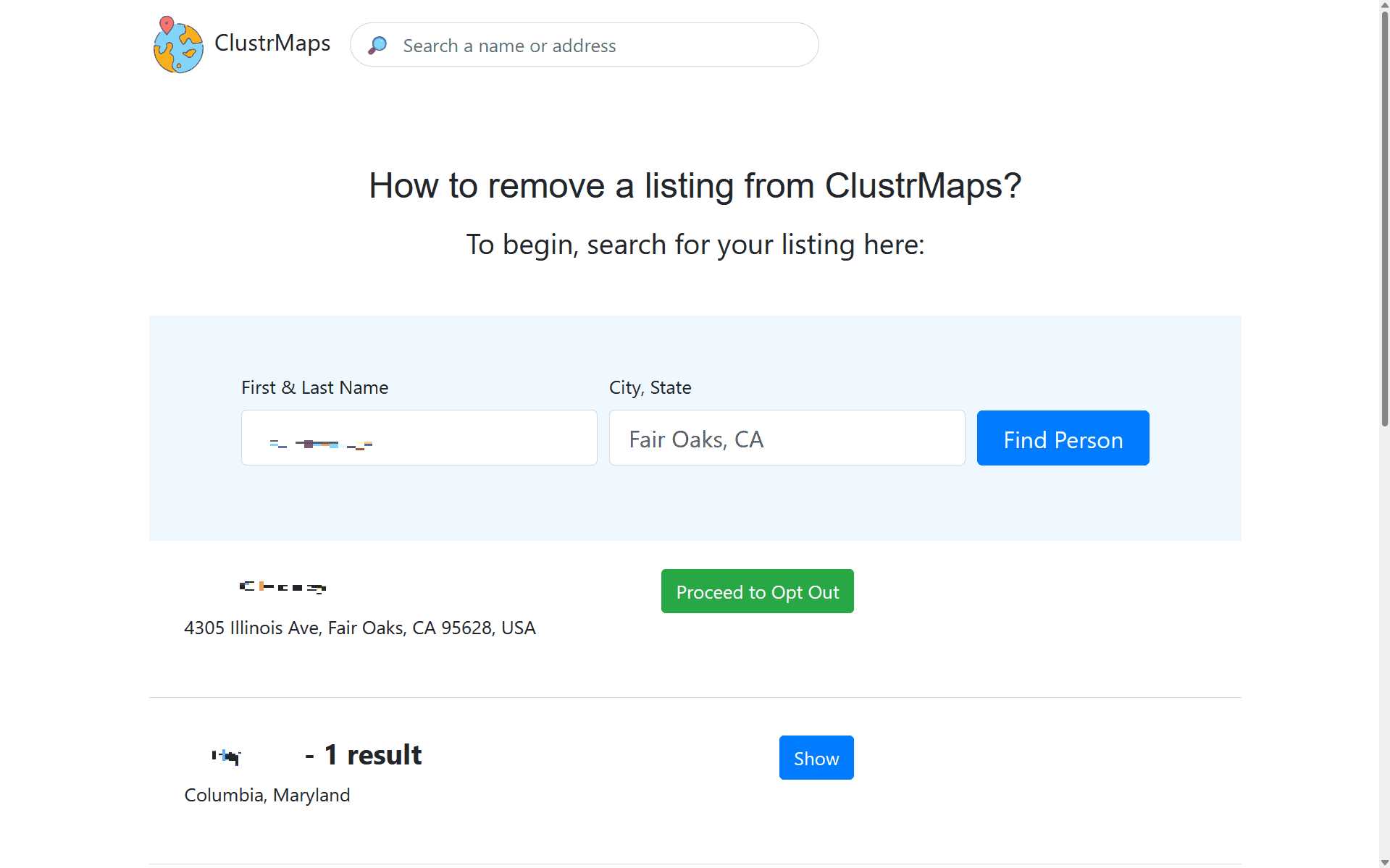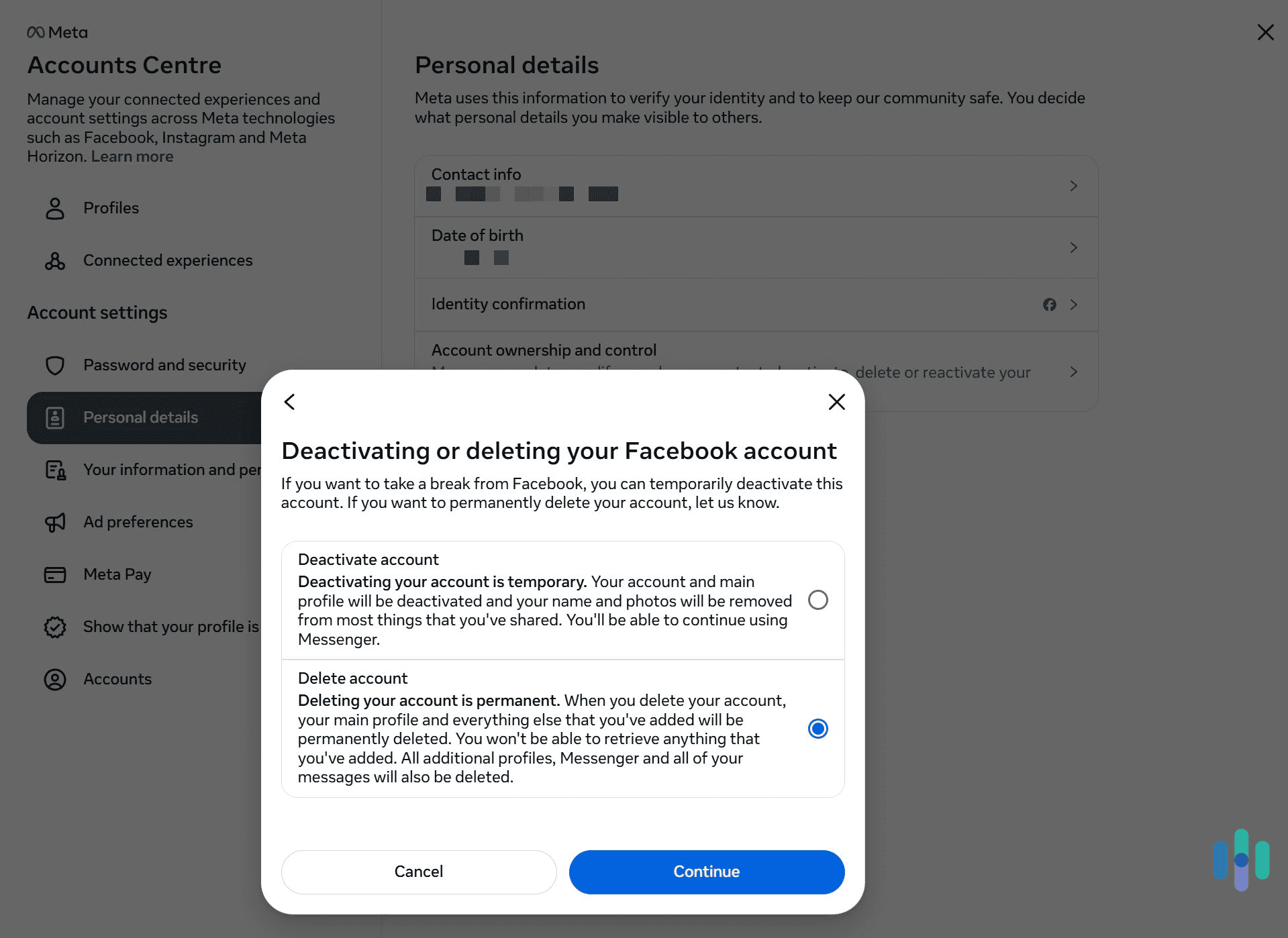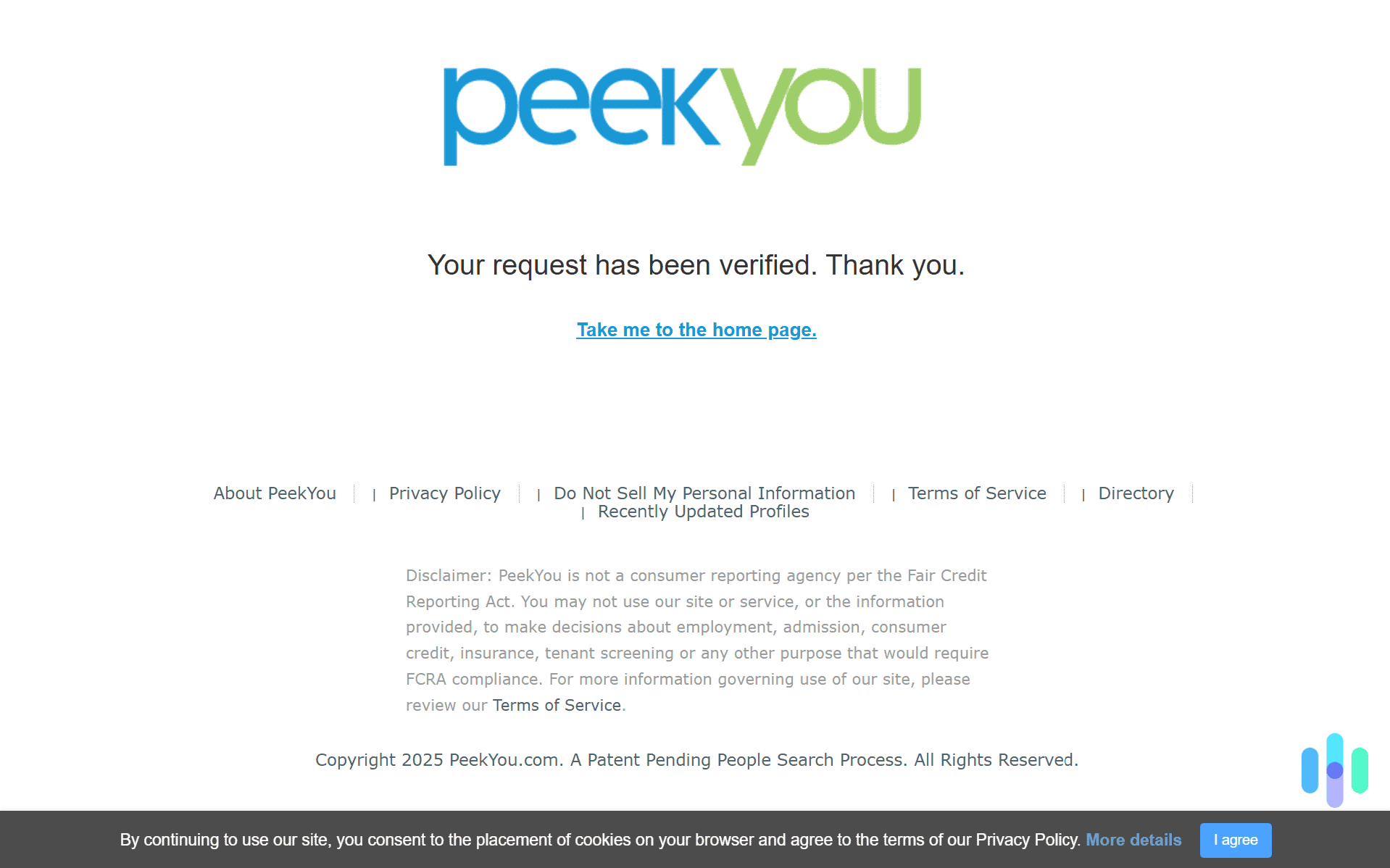There’s no guaranteed method that 100% prevents stalking. Fortunately, there are steps you can take to limit your exposure to stalking and prevent it from getting worse.
The problem is, if you Google how to prevent stalking, you’ll find many articles that bombard you with tips — it can be overwhelming. That’s why we put together this easy-to-read guide with the most actionable tips. We also talked with a few stalking awareness and prevention experts to see which advice is best to highlight.
5 Ways to Prevent & Limit Stalking
To keep things simple, we’ll cover multiple stalking prevention tips under similar categories. The sections below will discuss how to protect your personal data, how and why you should inform people about being stalked, how you should avoid contact with the stalker, and how you can improve both your personal and home security.
1. Protect Your Privacy (Online & Offline)
How well your personally identifiable information (PII) is secured determines how easy it would be for a stalker to harass you. There are various things you can do to protect your privacy, both digitally and in real life. We’ll cover what steps you can take (both online and offline) below.
How to Protect Personal Information Online
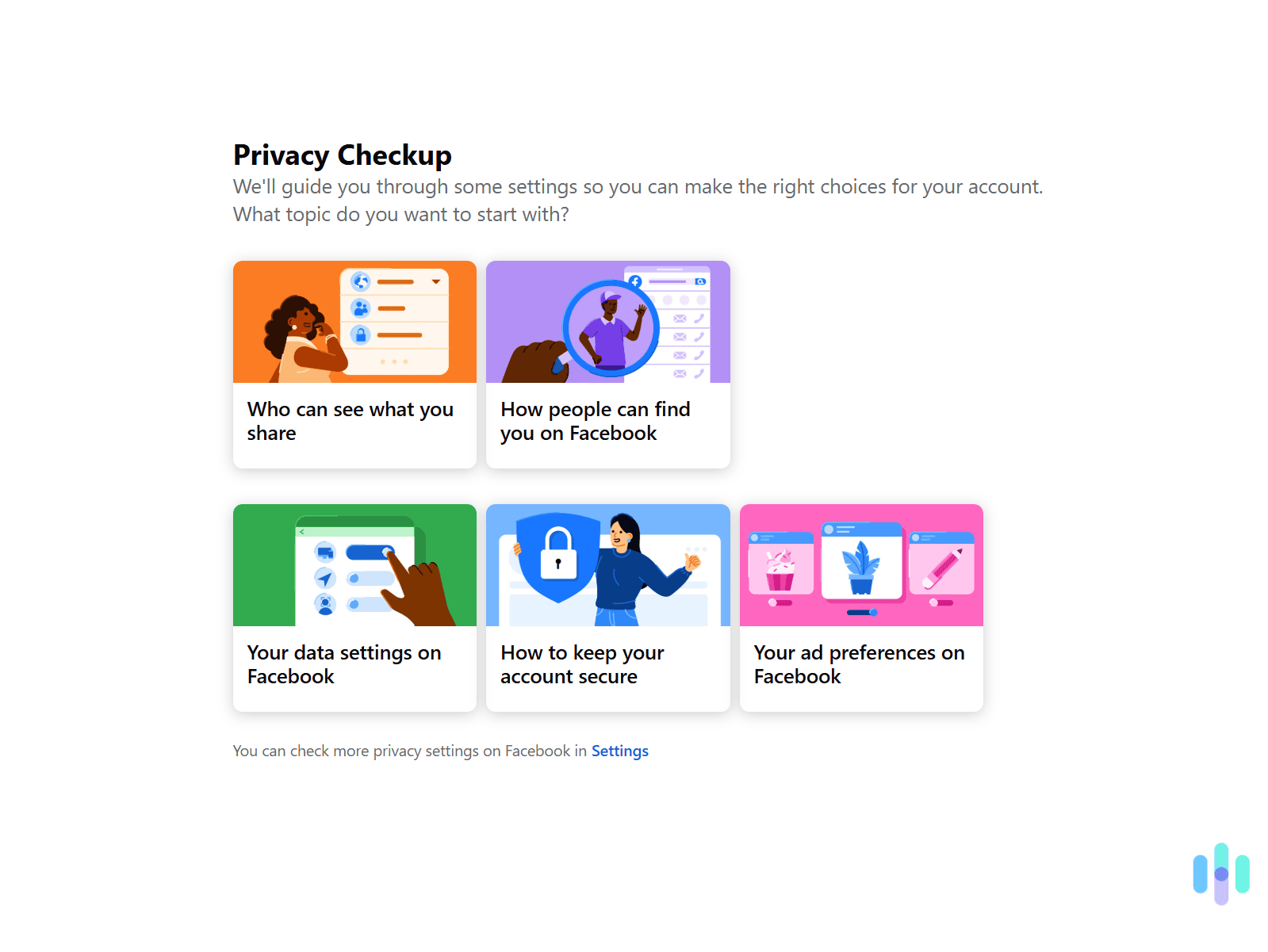
To start off, don’t post any overly personal information on your social media profiles. Many stalkers use social media profiles to figure out where a person lives, their email address or phone number, and the places they frequent. So, keep your home address, email, and phone number off social media — and also don’t share your routine either. For example, if you go to the gym every Monday and Wednesday, don’t post about it. Better yet, make your social media accounts private. We have guides on how to do that for your Facebook and Instagram accounts:
When setting your social media account privacy, you should make sure that strangers can’t view your profile, see who your friends or relatives are, see what you post, and message you. To be 100% safe, we also recommend enabling two-factor authentication (2FA) for your social media account. This way, if the stalker somehow manages to compromise your login credentials, they won’t be able to log in and take over your account.
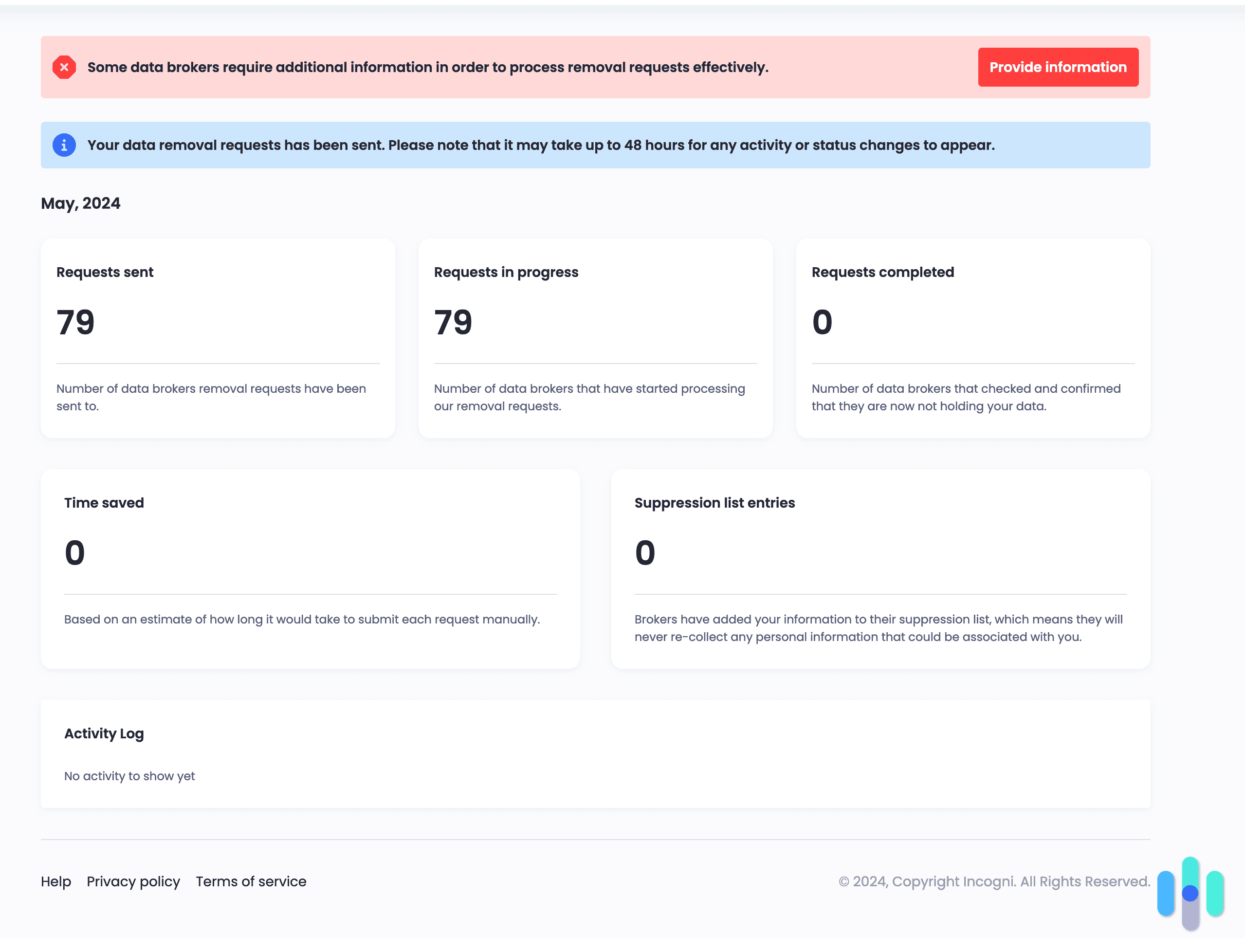
We also recommend signing up for a data removal service to remove your personal data from data broker websites. A data broker basically aggregates all of your personal data and makes it publicly available on its website. If a stalker knows your full name and general location, they could use a data broker site to find your phone number, email address, and even where you live or work.
Incogni’s data removal service finds your personal information – including addresses and phone numbers – on people search sites. It also sends removal requests, reducing the risk of online stalking, doxxing, and identity theft.

It’s also a good idea to get antivirus protection. An antivirus is software that will protect your device from online threats. Basically, it would stop a stalker from potentially infecting your device with malware to compromise all data on it. We recommend reading our list of the best antiviruses in 2026 to see which one is right for you.
Expert Tip: Sometimes, stalkers might use your IP address to figure out your approximate location — like the country and city you live in. They could also use your IP address to identify your ISP and launch phishing attacks to try to compromise your privacy. If this concerns you, we recommend using a VPN, which is an online app that hides your IP address. Check out our list of the best VPNs in 2026.
How to Protect Personal Information Offline
Here are some things that you can do to prevent stalkers from compromising your personal data:
- Only give out your personal information to people you trust. This is self-explanatory, but we wanted to mention it anyway since it’s an extremely important line of defense against stalking.
- Get a private post office box. Have all mail sent to a private post office box instead of your home. This prevents stalkers from finding out where you leave. It also stops them from leaving things in your mailbox or stealing your mail to gather personal information.
- Shred any mail or documents you plan to discard. Before you throw any documents or mail into the trash, make sure to shred them first. Otherwise, a stalker could go through your trash, find them, and use them to collect more of your personal data.
- Don’t display your name on the front of your house. Maybe a stalker knows your name and the general area where you live. If your name is shown on the front of your home, it will be very easy for the stalker to find out your exact address.
- Don’t use personalized number plates. Your car’s number plate shouldn’t contain any personalized information that could allow a stalker to find out who you are. For example, your number plate shouldn’t display your name or your birthday.
- Use a privacy screen for your devices. This is a screen that you apply to your phone or laptop. Once it’s applied, the contents of your screen are only visible if you’re looking straight at it. This means a potential stalker won’t be able to look at your screen at an angle or while behind you. If they do, the content will look distorted or darkened to them.
2. Inform Other People
People who are harassed by stalkers often hesitate to inform those around them about this. That’s understandable why somebody would feel reluctant to do so in such a situation. That said, it’s ultimately important that you inform the people in your life. Otherwise, a stalker could take advantage of the situation. For example, they could extract personal information from those close to you by pretending to be your friend and asking your neighbors about your work schedule.
Alerting people in your life about stalking incidents also helps you get better support through the ordeal. Plus, it can provide strong evidence if the case ends up in court.
When telling other people, try to provide a picture of the stalker. If you don’t have one, give a very clear description. If you know the stalker’s vehicle, share the car model and license plate as well. We also strongly advise telling people not to initiate contact with the stalker if they see them. At most, they should try to discreetly photograph the stalker and then contact the police.
Pro Tip: Informing other people doesn’t just mean talking to friends, family, and neighbors. You should also notify your work colleagues and supervisors. Ideally, your supervisors should be willing to screen visitors or phone calls directed at you. Also, if you work in an office building, make sure to inform security personnel about the situation.
3. Don’t Contact the Stalker
If you’re dealing with a stalker, the only time you should speak to them is when you clearly and calmly tell them that you don’t want any contact and that they must stop all communication. After that, you should not reach out to them again — and the same goes for your friends and family.
Going no-contact is very important because stalkers are usually seeking a reaction, whether positive or negative. You should never try to plead with them to leave you alone — it won’t work. Likewise, no one in your life should respond aggressively or threaten them. You should also never agree to meet up to “talk things out.” If the stalker sends gifts or letters, don’t return them. More often than not, that only escalates things.
Only the police should contact the stalker. So, if you’re being stalked and you know who the person is, contact your local authorities.
FYI: Accidental contact can happen. If it does, do not show any emotion or engage. Instead, seek refuge in the nearest public place or closest business and contact the police.
4. Improve Your Personal Security
If you’re already dealing with a stalker, here are some measures that you can take to keep yourself safe:
- Change your daily routines. Don’t take the same route to work, the gym, or the store every time. Vary your schedule for the locations you visit the most often throughout the week.
- Don’t walk alone at night or in remote areas. If you work outside the home, try to have someone walk with you to your car when you leave.
- Learn the location of the nearest police station. Identify which police stations are the closest along your regular routes.
- Inform other people about your location. Always tell your friends and family where you’re going, and consider sending regular location updates.
- Pay close attention to your car. Always make sure you lock your vehicle when entering or exiting. Before getting in, make sure no one is hiding inside.
- Join an auto-club. If your car breaks down or appears to have been tampered with, being part of an auto club gives you quick access to roadside help.
- Always carry a phone with you. This allows you to call for help at any time. Keep one nearby even when you’re at home.
- Consider getting a personal duress alarm. These are small, discrete devices that you can carry anywhere and use to quickly call for help in an emergency.
- Consider joining a self-defense class. It can help you protect yourself and give you a greater sense of personal empowerment.
5. Improve Your Home Security
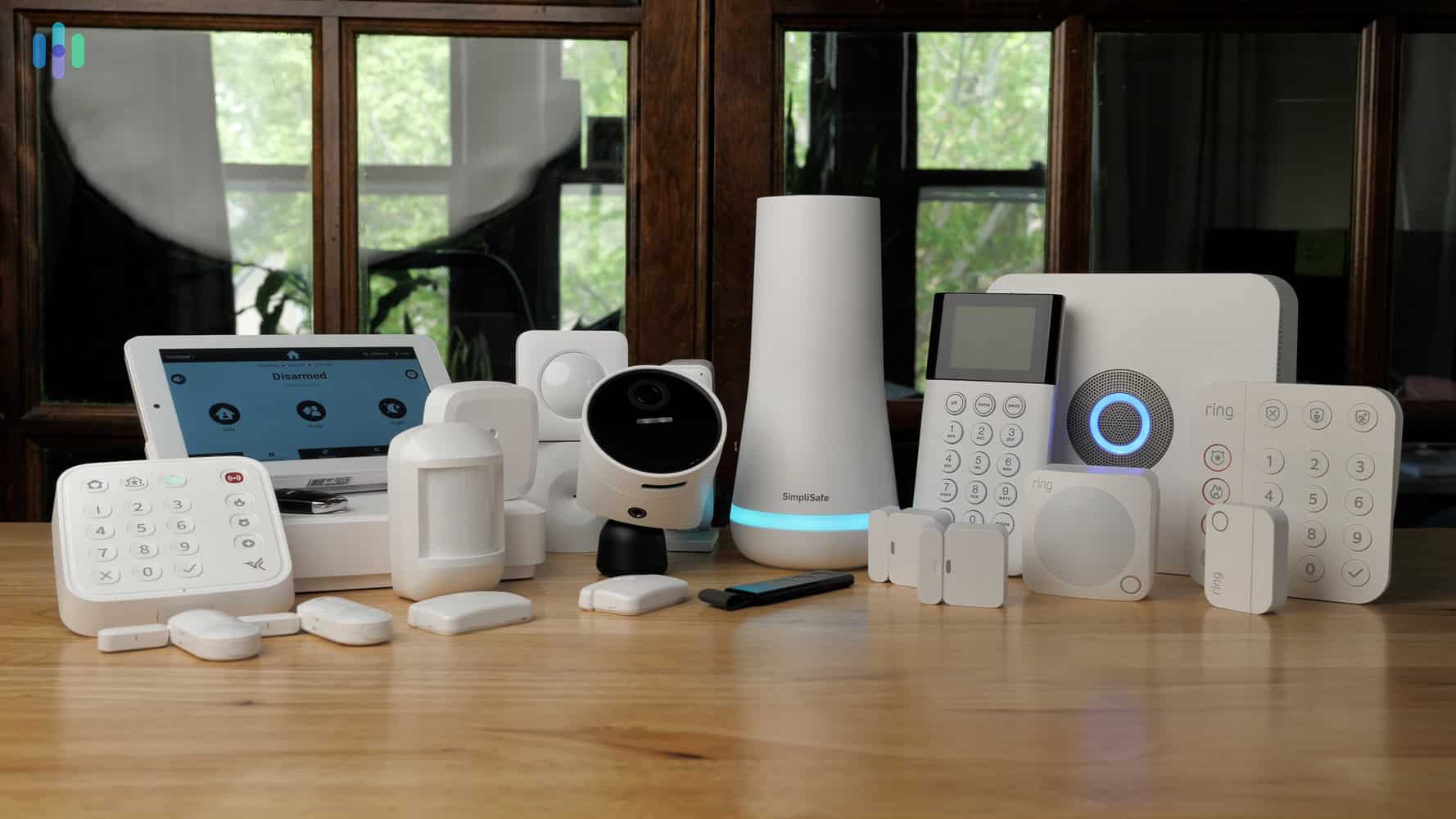
If you’re dealing with a stalker, it’s extremely important to change your home’s locks. Ideally, you should install deadlocks as well as window locks. Plus, we recommend installing sensor lights that will light up whenever someone tries to approach your home at night.
If you have any bushes near your home, consider trimming them. A stalker could use them as a hiding place. Also, don’t leave ladders around your house, as they could be used for climbing. In addition, you should consider outfitting your doors with a peephole, locking your power box, and even getting a dog.
There are definitely more things that could be covered here. If you’d like to learn more about protecting your home, check out our full home security guide.
We also strongly recommend investing in a home security system. Such a system would allow you to monitor your home remotely, and it will also send you activity alerts if anything suspicious happens. Some home security systems have dedicated teams that monitor the alerts, notify you, and even dispatch the police to your home. There are many good options on the market, so we recommend reading our guide to the best home security systems in 2026 to familiarize yourself with the top services.
>> Read More: What Is a Home Security System & How Does It Work?
Conclusion
If you’re dealing with a stalker, it’s extremely important to collect evidence of the stalking and contact the police. But there are also plenty of steps you can take to limit its impact. This includes protecting your privacy, especially online. For example, you should make your social media accounts private, use a data removal tool to remove your personal information from data broker sites, and get antivirus protection.
In addition, you should also inform the people in your life about the stalking. Plus, you should never try to contact the stalker. We also recommend taking steps to improve your personal and home security.
>> Further Reading: Securing Confidential Personal Information Both Online & Offline
FAQs
-
Can someone stalk you on social media?
Yes. Stalkers use social media to stalk and gather lots of information on their victims. That’s why you should never post too much personal information on social media. Also, make your social media profiles private so that strangers can’t see your friends, what you share, or message you.
-
Should you confront a stalker?
No, you should never do that. It’s best not initiate any contact with the stalker, or try to plead with them or threaten them. Only the police should contact the stalker.
-
Can a stalker find out where you live?
Yes. If you post your home address on social media, they could find it that way. Also, if a stalker knows your name and what city you live in, they could use data broker sites to find out where you live. That’s why we recommend using a data removal service to remove your personal data from such websites..
-
Should you change your locks if you’re being stalked?
Yes, and you should install deadlocks, as well as locks for windows. You should also consider getting a home security system. It lets you remotely monitor your home when you’re away and will also send alerts if anything suspicious happens.



